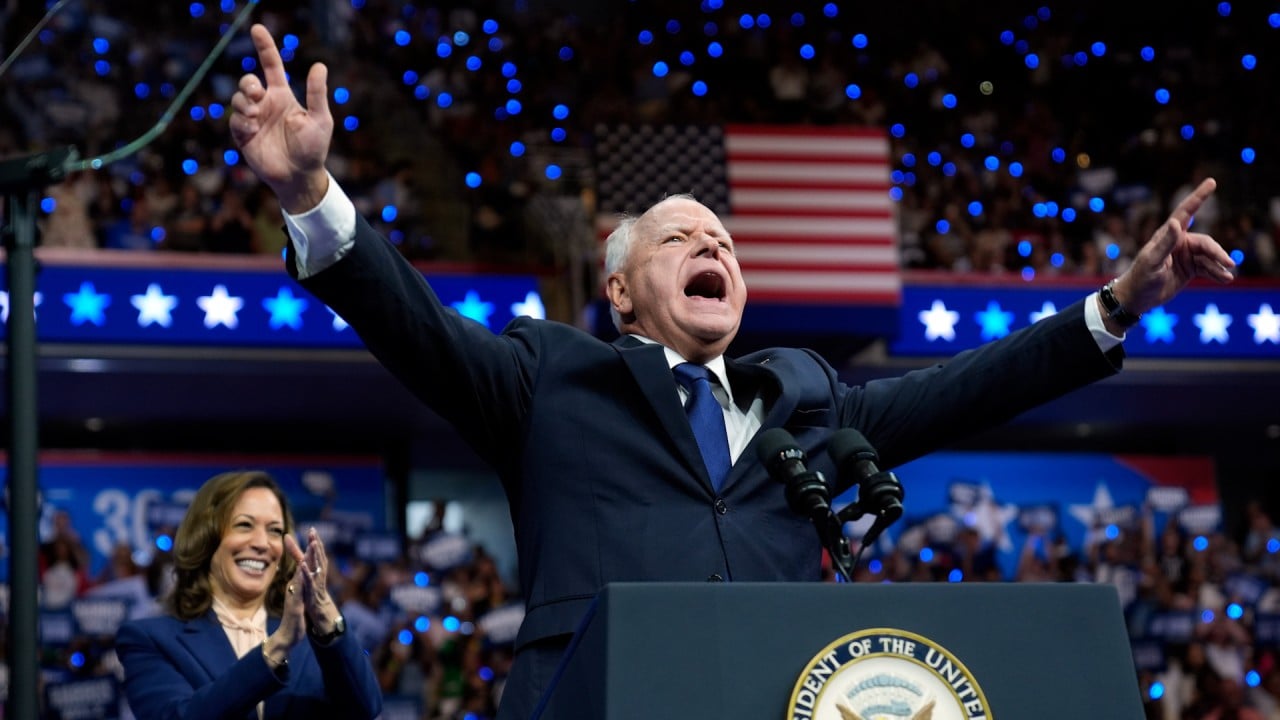Former president Donald Trump, should he win in November, seems unlikely to resolve the US-China conflict. As he did in his first administration, he intends to lead with tariffs. Trump has proposed
raising US tariffs on Chinese imports to between 50 per cent and 60 per cent after having raised them during his first administration from 3 per cent in early 2018 to 19 per cent in 2020.
As was the case with
Trump’s earlier tariffs, this effort would backfire. For starters, tariffs are a tax on Chinese exporters that raise prices for US consumers. According to recent research by the Peterson Institute of International Economics, the additional costs from Trump’s new proposed tariffs would be at least 1.8 per cent of GDP, nearly five times those caused by his first round.
Second, tariffs on China do not reduce the overall trade deficit for a savings-short US economy. Instead, they shift the deficit to other, largely higher-cost, foreign producers. That is what happened after Trump’s initial tariffs: the bilateral imbalance with China shrank, but increased deficits with other countries more than offset it.
US Vice-President Kamala Harris, by contrast, appears to have no intention to up the ante on tariffs. But she does seem inclined to endorse President Joe Biden’s “
small yard, high fence” doctrine. That would include a continuation of Biden’s tariffs (largely carried over from Trump) and targeted sanctions, along with de-risking and friendshoring strategies.
While less aggressive than Trump’s potential mega tariffs, the anti-China approach that Harris inherits from Biden would hardly de-escalate tensions.
The two candidates seem likely to hold different views on Taiwan. In a June interview with
Bloomberg Businessweek, Trump emphasised a more transactional approach to defending Taiwan. He argued that, like an insurance premium, “Taiwan should pay us for defence”. Trump has previously taken the same stance – that wealthy countries should pay for US protection – with Europe,
Nato and even
Japan.
I am not in favour of a mercenary approach to US foreign policy. But I must concede that Trump’s tactics could well shift the burden of deterring Beijing
from the US to Taiwan. This could be a positive development, to the extent that it reduces direct tensions between the two superpowers. But it would still be far from a strategic recipe for conflict resolution.
While neither Trump nor Harris are predisposed toward ending the US-China conflict, there is a potential twist that hints at a Nixonian breakthrough with China: Harris’ selection of
Minnesota Governor Tim Walz as her running mate.

02:07
US vice-presidential hopeful Tim Walz slammed by Trump supporters for China connection
US vice-presidential hopeful Tim Walz slammed by Trump supporters for China connection
Like former US president George H.W. Bush, who served as chief of the US Liaison Office in Beijing in 1974-75, Walz has a special
connection with China. He first travelled there as a teacher in 1989, during the tragic events in Tiananmen Square, which shaped his views on what he later described as China’s “unthinkable” tendencies. Walz even chose to get married on June 4, 1994, the fifth anniversary of the Tiananmen tragedy.
But, in addition to his concerns about human rights and Chinese military aggression in the South China Sea, Walz has also stressed the importance of a sustainable US-China relationship, arguing that
dialogue is essential and “absolutely has to happen”. In other words, he would bring a pragmatism that is sorely missing from the US stance towards China.
Vice-presidents rarely shape major policy initiatives. But, in this case, Walz’s views on China raise the chances of a Nixon-like initiative by a Harris administration. Harris and Walz share concerns about Chinese human rights and South China Sea tensions. But they also recognise the need to face the urgent imperative for a course correction in a troubled Sino-American relationship.
This nuanced perspective would allow them to walk and chew gum at the same time. It would encourage them to prioritise re-engagement over digging in their heels at every point of friction in a conflicted relationship. That is what freed Nixon to put aside his ideological biases and
engage China in 1972. Walz might well help tip the scales for Harris’ China policy.
Many of today’s geostrategic circumstances are eerily similar to the Cold War climate half a century ago. Who better than a thoughtful new US president to mitigate a dangerous dynamic with another superpower and shift the relationship from conflict escalation to conflict resolution?
Under the watch of Trump and Biden, America’s China problem went from bad to worse. If Harris prevails in November, that need not be the case.
Stephen S. Roach, a faculty member at Yale University and former chairman of Morgan Stanley Asia, is the author of Unbalanced: The Codependency of America and China. Copyright: Project Syndicate
